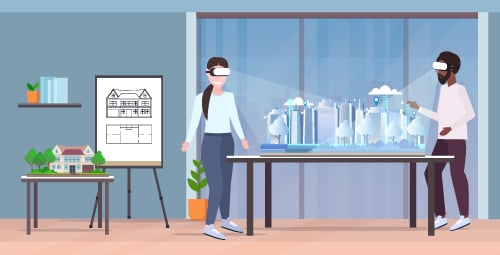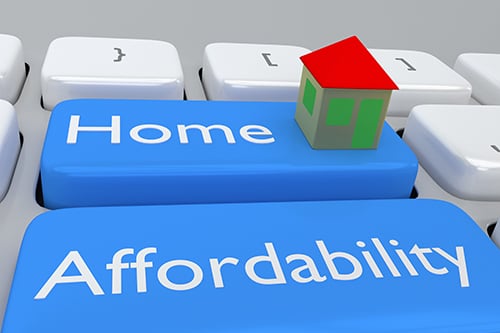Noticeably, the Covid-19 pandemic has impacted us in a lot of ways. Be it work or life in general, Covid-19 has altered our ways of doing things. Every sector of the economy, even the real estate sector, got widely hit by the novel coronavirus pandemic.
Keeping the new trends in mind, the real estate industry is sure to be evolved. Mainly, demand and supply dynamics will change significantly. Let’s have a look at the following pointers to understand how these demand-supply dynamics are going to change:
a) Home Ownership:

Covid-19 has changed people’s perspective regarding owning a house. Lockdown impositions made it very clear that one of the places where people can feel safe and secure is their own home. Hence, the concept of owning a home has gained renewed importance despite an unavoidable economic slowdown and the palpable uncertainty in the market. Following this mindset, homeownership will take prominence and influence urban development and real estate choices.
b) Digitisation:

Like any other market in the pandemic, the realty market will also adjust to the popular digitization trends. Digitisation will dominate most real estate marketing processes, whether it is transactions, property management, capital deployment, virtual tours, or even consumption patterns. Also, innovation with AI and Virtual Reality in this Real Estate sector will boost opportunities and enhance customer experience.
c) Affordable Homes:

The government has never failed to take the initiative to give a positive push to the real estate market. Schemes like the Pradhan Mantri Awas Yojana have raised the demand for affordable housing, giving home buyers and builders advantages. Also, the incentives for developers like subsidies, tax benefits, and institutional funding have paved the way for a solid investment in this sector.
d) WFH residences & revamped commercial realty offerings:
As mentioned earlier, people are liking the option of working from home. Hence, sooner or later, WFH will become a significant part of everyone’s lives. This will increase the demand for the new home-decor trend which is designed for WFH spaces.

e) Distance doesn’t count:
Due to the pandemic, employees got a chance to work from home. Astonishingly, the productivity rate of some companies also increased while working from home. Hence, most organizations are planning to work remotely post-pandemic as well. This will allow people to move to peripheral locations for better affordability, increasing the demand in the real estate market.
Post-COVID-19, many new changes will emerge in how people think and live. Despite being downturned due to the pandemic, the real estate sector is now fully ready to incorporate these new technological advancements. It can be concluded that the Covid-19 pandemic has brought about massive shifts in real estate education and investments, and it will continue to outlive the pandemic.
About RICS SBE:
RICS School of Built Environment (RICS SBE), Amity University is an industry-led academic institution that delivers specialized undergraduate and postgraduate programs to students ambitious to work in the real estate, construction and infrastructure sector. It also aids as a hub for research and development of technical proficiency in the built environment.